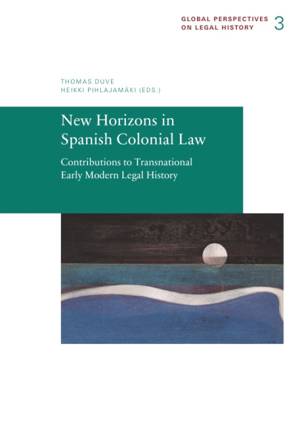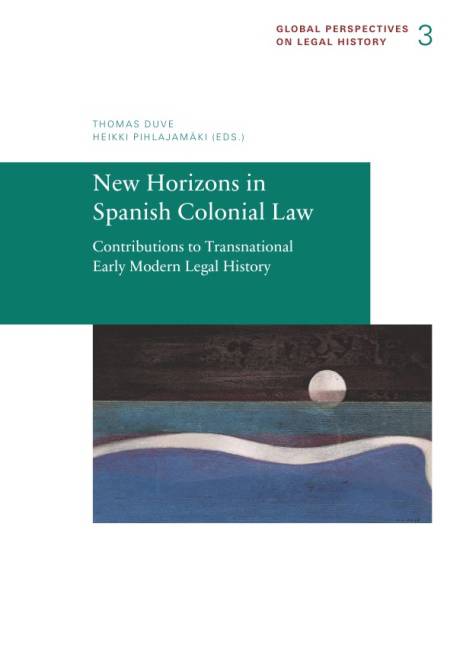
- Retrait gratuit dans votre magasin Club
- 7.000.000 titres dans notre catalogue
- Payer en toute sécurité
- Toujours un magasin près de chez vous
- Retrait gratuit dans votre magasin Club
- 7.000.0000 titres dans notre catalogue
- Payer en toute sécurité
- Toujours un magasin près de chez vous
New Horizons in Spanish Colonial Law
Contributions to Transnational Early Modern Legal History
13,95 €
+ 27 points
Description
Spanish colonial law, derecho indiano, has since the early 20th century been a vigorous subdiscipline of legal history. One of great figures in the field, the Argentinian legal historian Víctor Tau Anzoátegui, published in 1997 his Nuevos horizontes en el estudio historico del derecho indiano. The book, in which Tau addressed seminal methodological questions setting tone for the discipline's future orientation, proved to be the starting point for an important renewal of the discipline. Tau drew on the writings of legal historians, such as Paolo Grossi, Antonio Manuel Hespanha, and Bartolomé Clavero. Tau emphasized the development of legal history in connection to what he called "the posture superseding rational and statutory state law." The following features of normativity were now in need of increasing scholarly attention: the autonomy of different levels of social organization, the different modes of normative creativity, the many different notions of law and justice, the position of the jurist as an artifact of law, and the casuistic character of the legal decisions. Moreover, Tau highlighted certain areas of Spanish colonial law that he thought deserved more attention than they had hitherto received. One of these was the history of the learned jurist: the letrado was to be seen in his social, political, economic, and bureaucratic context. The Argentinian legal historian called for more scholarly works on book history, and he thought that provincial and local histories of Spanish colonial law had been studied too little. Within the field of historical science as a whole, these ideas may not have been revolutionary, but they contributed in an important way to bringing the study of Spanish colonial law up-to-date. It is beyond doubt that Tau's programmatic visions have been largely fulfilled in the past two decades. Equally manifest is, however, that new challenges to legal history and Spanish colonial law have emerged. The challenges of globalization are felt both in the historical and legal sciences, and not the least in the field of legal history. They have also brought major topics (back) on to the scene, such as the importance of religious normativity within the normative setting of societies. These challenges have made scholars aware of the necessity to reconstruct the circulation of ideas, juridical practices, and researchers are becoming more attentive to the intense cultural translation involved in the movement of legal ideas and institutions from one context to another. Not least, the growing consciousness and strong claims to reconsider colonial history from the premises of postcolonial scholarship expose the discipline to an unseen necessity of reconsidering its very foundational concepts. What concept of law do we need for our historical studies when considering multi-normative settings? How do we define the spatial dimension of our work? How do we analyze the entanglements in legal history? Until recently, Spanish colonial law attracted little interest from non-Hispanic scholars, and its results were not seen within a larger global context. In this respect, Spanish colonial law was hardly different from research done on legal history of the European continent or common law. Spanish colonial law has, however, recently become a topic of interest beyond the Hispanic world. The field is now increasingly seen in the context of "global legal history," while the old and the new research results are often put into a comparative context of both European law of the early Modern Period and other colonial legal orders. In this volume, scholars from different parts of the Western world approach Spanish colonial law from the new perspectives of contemporary legal historical research.
Spécifications
Parties prenantes
- Editeur:
Contenu
- Nombre de pages :
- 262
- Langue:
- Anglais
- Collection :
- Tome:
- n° 3
Caractéristiques
- EAN:
- 9783944773025
- Format:
- Livre broché
- Dimensions :
- 148 mm x 15 mm
- Poids :
- 351 g

Les avis
Nous publions uniquement les avis qui respectent les conditions requises. Consultez nos conditions pour les avis.





